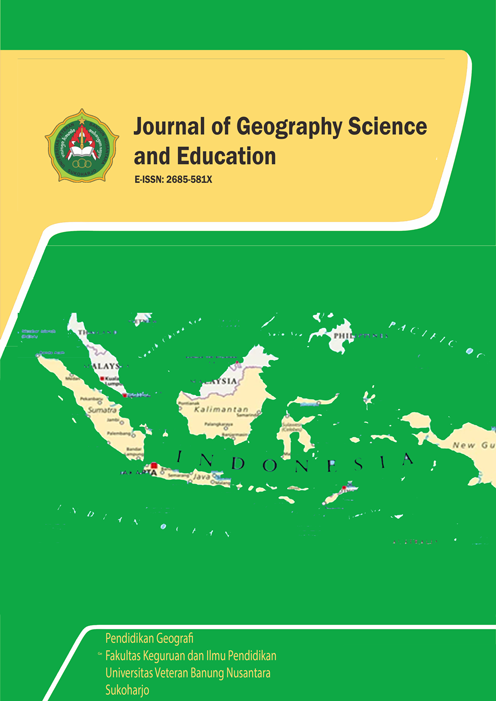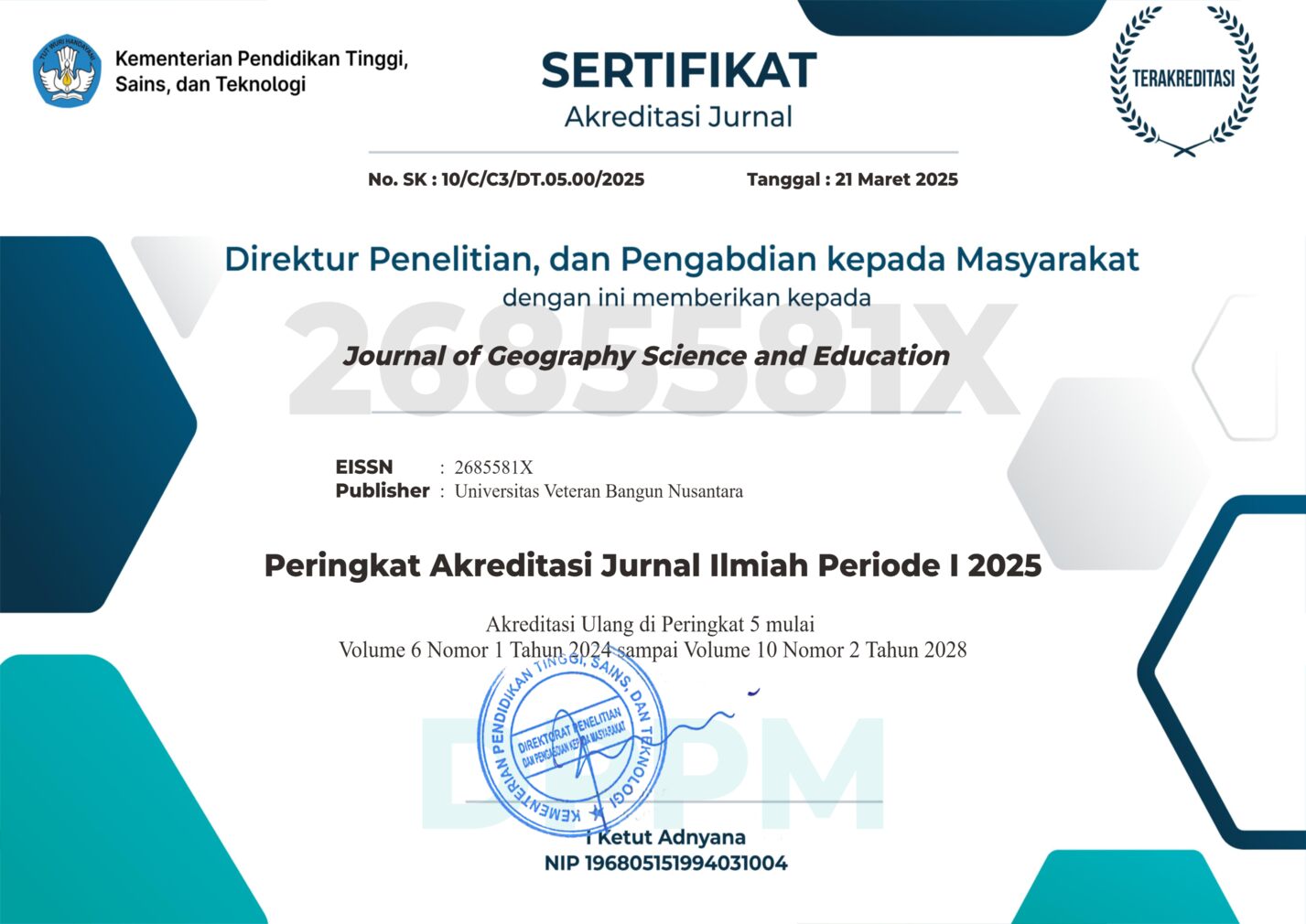Slum Upgrading in Cengkareng, West Jakarta
DOI:
https://doi.org/10.32585/jgse.v6i2.5990Abstract
This research aims to evaluate the level of slum conditions in Cengkareng Subdistrict and identify suitable upgrading alternatives to address the situation. The assessment method used is scoring/weighting based on the Guidelines for PU Cipta Karya to measure the level of slum conditions, and the Analytic Hierarchy Process (AHP) method to determine slum upgrading. This strategy is based on best practices taken from the Book of CODI updates with a focus on Community Upgrading Projects published by the Community Organizations Development Institute in Thailand. The study results indicate that there are three levels of slum conditions in Cengkareng Subdistrict, namely, light, moderate, and severe slums. For alternative rejuvenation strategies, on-site upgrading is chosen for low and moderate slum levels, while on-site reblocking is selected for areas with a very severe slum condition.
Downloads
Downloads
Published
How to Cite
Issue
Section
License
Copyright (c) 2025 Saipiatuddin, Achmad Nur Hidayaht, Nandi Kurniawan

This work is licensed under a Creative Commons Attribution-ShareAlike 4.0 International License.
Authors who publish with the Journal of Geography Science and Education agree to the following terms:
- Authors retain copyright and grant the journal the right of first publication with the work simultaneously licensed under a Creative Commons Attribution License (CC BY-SA 4.0) that allows others to share the work with an acknowledgment of the work's authorship and initial publication in this journal.
- Authors are able to enter into separate, additional contractual arrangements for the non-exclusive distribution of the journal's published version of the work (e.g., post it to an institutional repository or publish it in a book), with an acknowledgment of its initial publication in this journal.
- Authors are permitted and encouraged to post their work online (e.g., in institutional repositories or on their website) prior to and during the submission process, as it can lead to productive exchanges, as well as earlier and greater citation of published work.










